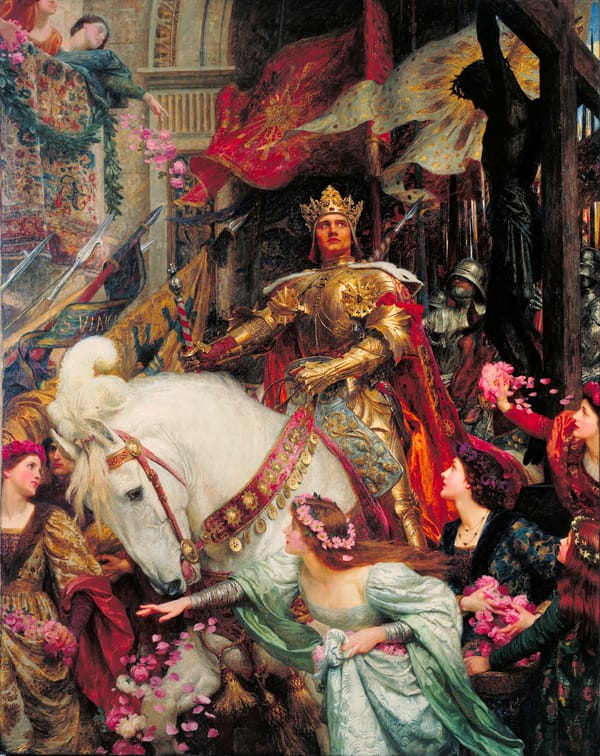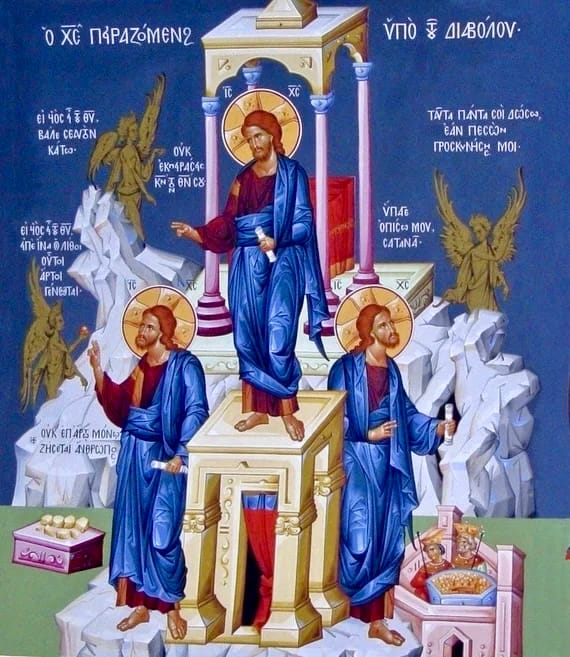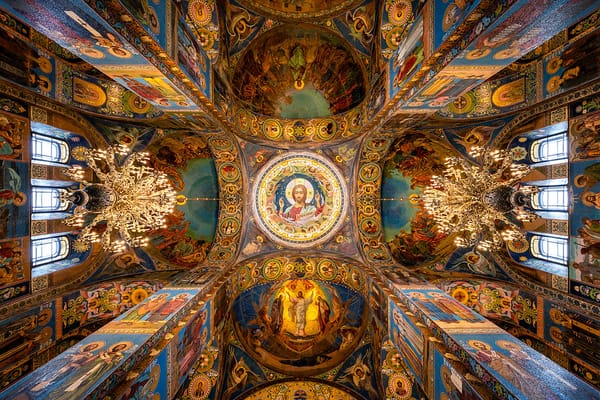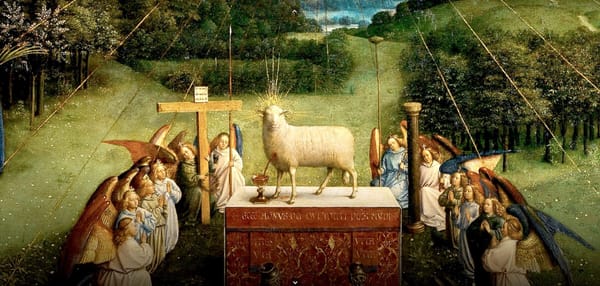Ersatz Israel
Only that which we can never possess can we never lose.
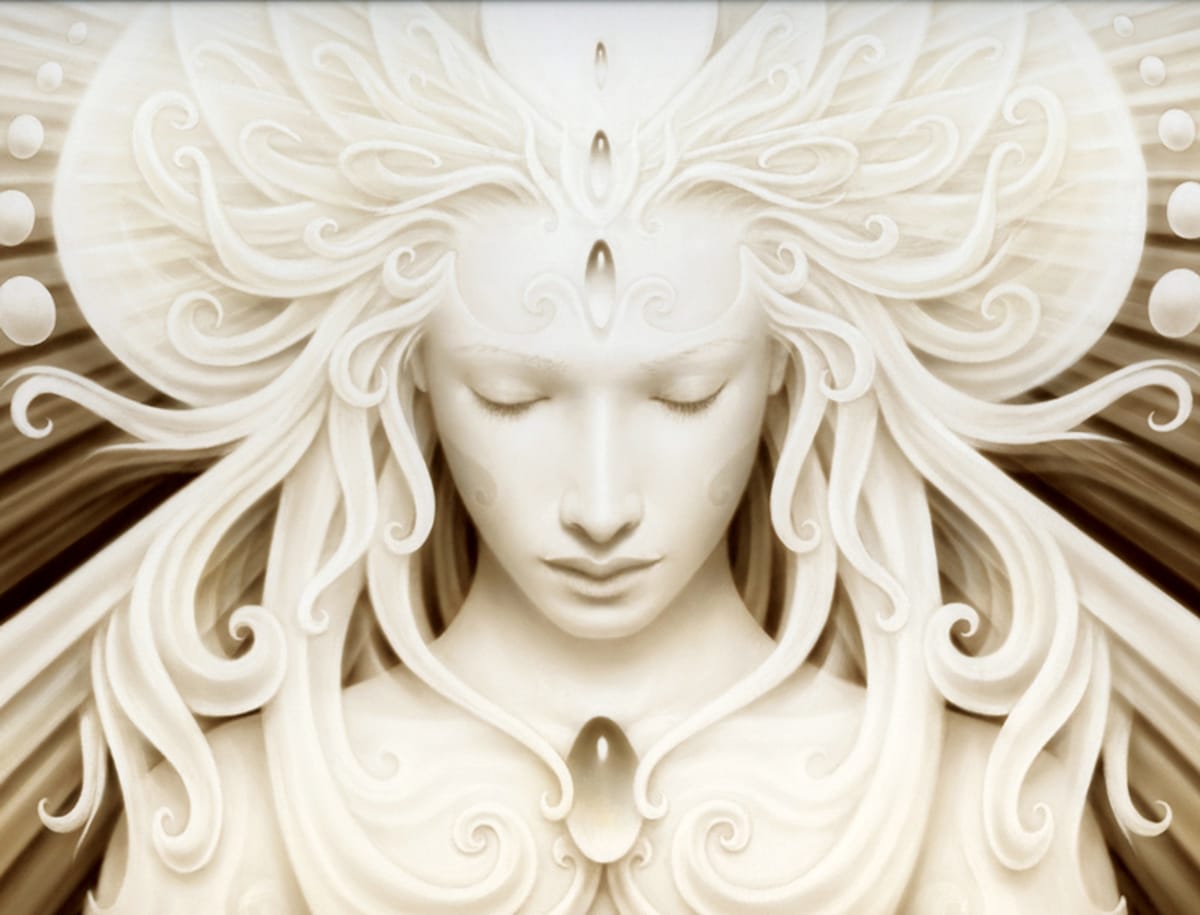
The Kingdom of God is Within
The life of the spirit is squashed by coercion because if God is Love, Love can only be free. A forced smile is fake, and a forced kiss is an offense. As the Quran says, “there is no compulsion in religion.”[1] Therefore, where there is compulsion, there is also no religion.
Force is always power over something else, and where there is force, there is no love. Where privileged knowledge gives power, it easily leads to power over others and thus the danger of heartless knowledge. It is better to be ignorant and good in our impotence than “wise” and malignant in our power.
To wage war is to struggle over territory. We can only fight over what we see as rivalrous goods — things of this world which can only have one owner at a time. But if the kingdom of God is within then it is within we find the house of peace. It is outside we find the house of war. Just as a man who calls himself humble almost certainly is not, as soon as something makes an exclusionary claim to Christendom (or anything of the sort) it is most likely counterfeit.
The biblical flood was precipitated by terrible violence — hamas. Surrounded on all sides by wars and rumors of wars, Noah didn't take up arms, he made an ark — a loan word from Egyptian meaning sarcophagus. Noah took everything of value with him to preserve during the deluge, which was chiefly life and the capacity to foster more life.
Christ says we can only serve one master: either God or Mammon. Which will it be? “Mammon” can mean wealth, money, and even blood. For me, mammon is any and all means with which we become obsessed. As means to a beautiful end they are good but when means become ends in themselves, that is mammon. When we lose sight of affection and settle for sex or choose pleasure instead of meaning, or even health instead of principle — that is Mammon worship, the very essence of living outside the Holy Land. He who loves his life will lose it.
The “wisdom of God is foolishness to the world” — it means the disputes of the house of war are not our fights. Why? Because a house divided against itself cannot stand. We need not lift a finger against the house of war because it destroys itself. We can still nurture and protect defensively our loved ones, but the spiritual path declines to react to evil and refuses to initiate new evil. Turning the other cheek insists on peace when surrounded by war, and we know how warring factions treat pacifists: the occupying Romans and the collaborating Pharisees saw Jesus as a threat to their territorial claims, one of empire and one of religion. So they had him crucified. Gandhi, who believed that partitioning India would be a grave tragedy undermining his life's work, was assassinated.
Polycarp, a man in the immediate apostolic succession of St. John, was told to say, “Away with the atheists!” and his life would be spared. Christians at the time were called “atheists” in the Roman empire because they did not worship other gods and refused to give tribute to Caesar. Polycarp turned to the jeering mob and dismissively said about them instead, “Away with the atheists!” He was burned at the stake, but never left the kingdom of heaven. It is Malkuth that is the domain of the Shekinah. We estrange her presence ever more when we take up qlipphothic means against our neighbors. But as David sings in Psalms, God does not want burnt offerings or sacrifices but accepts a pure and contrite heart.
Attachment to the body, to externalities, and to means of maintaining our own health, binds us up with the greatest lie ever told. Attachment to the body is like identifying with the close we wear. Our bodies are garments for our souls.
Death is the most coercive mind virus, for it is to believe that illusion that the external was the real. The serpent said, “You will not die” and yet, since the Fall, all we can do is die and die and die again. As soon as our attention is fixed in grasping loyalty to transient things, we are destined to lose everything we love. Only that which we can never possess can we never lose. And this is love: it is given, not forced, and love is always intangible. Anything more is of the devil.
We are not strong enough to stay dead. If only our bodies would remain buried. If only suffering would end. No, we are so transient that even our deaths are impermanent. If our heart remains fixed on the world of transient forms, the glistening surface of the world, we invariably return there.
If we didn't believe in the deceit of death, what would there be to fight over? If our loved ones do not really die, and we will rejoin them, what wars would we really fight? Our unresolved animosity transmigrated with us too. The only way to slay an opponent permanently is to turn him into a friend.
Praying for one's enemies and loving those who persecute you absolutely looks like foolishness. I'd even go so far as to say if we don't appear foolish, then we are living by the laws of the world. We are living outside the Holy Land whenever we worship such idols. It is better to die singing like the Hasid on the way to gas chambers or making the ghost dance while being gunned down by federal agents. If we cower in fear from the world to preserve our miserable lives in isolation, we will quickly learn “he who loves his life will lose it, he who hates his life will gain it.” It is better to share a common cup and risk being with those we love than to die in fear and alone. Better to die with those we love than live without love.
“A courageous spirit does much to maintain a feeble body, and one year of a life spent in so noble and generous a manner is of more value than would be a century of care-taking and nervous fears.”[2]
The strange promise Christ, the Prince of Peace, gives “not to bring peace but a sword” is the promise to wage jihad on the house of war. Without lifting a finger, the bodhisattva’s non-reactivity absorbs negative karma from others, receiving unmerited offenses and not reacting to them is the path of wisdom. Yet this will divide you from your bio-family. They will hate you for not being loyal to your bloodline, your family name. They will despise you for standing up for what is right. And above all else, they will be embarrassed that you are related to them. Your own spouse will think you are a coward. Just try to be impartially kind and see how quickly the world will turn on you. There is nothing politically expedient about genuine tolerance, but it is divine.
This means we must offer wave upon wave of tolerance in the face of bigotry, peace in the face of war, non-retaliation in the face of calamity. It is by means of a road of crosses that Christ shall prevail against the gates of hell. This is how we wage peace. Peace is the serpent crucified within us and the descent of the dove.
When we try to find the kingdom of heaven in conditions, we can always lose it again because the one constant in this world is change. This is the hubris of resource wars, manifest destiny, and crusades. The true jihad is inside myself, not battling others. In fact, Christ warns us to remove the plank from our own eye before seeking to remove the fleck of dust from the eye of another.
“Instead of quenching his thirst for the infinite, he sought to gather everything around himself, as around a center. But because man isn't a true center in himself, this nature of his took revenge; it made him in reality run after things, even enslaving him to them.”[3]
The lawless house of war is always a disproportionate response. The house of war kills ten children for every one of theirs stolen. The principle of “an eye for an eye” was meant to limit our ferocious instincts, but total warfare inaugurated in Germany and perpetuated worldwide since then ignores this. The regressive slump into bigoted ideology clings to the ignorant notion that one faction is entitled to act unjustly because of some divine dispensation. The only one justifying disproportionate retaliation is Shaitan himself, who disguises himself as an “angel of light” and a champion of aggressively enforced justice.
Backlash arising from your own militant behavior is not persecution — that is just reciprocity. True persecution is when you live in the way of peace and for that are persecuted. Only for that can we consider ourselves blessed. While many affluent religious people seem to need to seek out and provoke unnecessary conflicts as displaced guilt projected on others, but this is not persecution but rather an attempt to cope with the message Christ gave us: “If you love me, they will hate you.” If you are not persecuted, then you don't love Christ. But if we feel persecuted — and not blessed — even here, we fall short. This is a path that promises more trials if you do it right, not fewer.
The minions of Shaitan are spread out throughout the world. They are impatient, reactive, conniving, backbiting, cherry-picking, blackmailing, and bigoted. They wave flags. They shoot guns. They torture. They interrogate. They insinuate. They excoriate. They denigrate. They say yes but mean no. They live by the rule of “do unto others what has been done unto you” and multiply the original offense by a hundred. These are whitewashed tombs. Yet even to these, Christ cried out, “Father, forgive them, for they know not what they do.”
We despoil the earth. But those who submit to the will of God, who are meek, will inherit the earth. The meek, who need only manna, say: “You will make the earth a desert, and after you are done, we shall live in it.” Once their terrible wars are finally over, only the peaceful will remain.
“The highest form of beauty in this world is the beauty of the human soul, which is related to ihsan, a term that means at once beauty, goodness, and virtue. To possess ihsan is to have the virtues of generosity and love and to live at peace in one's Center, where God resides.”[4]
To try to find peace in one's periphery is to abandon God at the center. All wars and disputes erupt due to a fall away from the heart to the surface.
You are onto safe near them except while you remain useful to them, because they love only Mammon. And Mammon is whatever is useful. These people see their own comfort, blood, and success as nonnegotiable, but cannot reciprocate for others. This is the logic of nation-building, of proselytizing, of colonization, of slavery and of all subjugation. Those of the house of peace know that the house of war cannot be battled with the same weapons. To take up arms against the house of war is to join it and to leave the house of peace. It is here, in the house of peace, that Krishna promises Arjuna, we shall “go forth no more.” We shall become pillars in a living temple. For all that is a means to an end is only a means to one end: to glorify God, who is Love itself.
As Jean Pierre de Caussade writes in The Sacrament of the Present Moment,
“The soul no longer sees where it is going, nor foresees where it will go; reflexions no longer help it to gain courage to endure fatigue, and to sustain the hardships of the way. All this is swept aside by an interior conviction of weakness. The road widens as it advances, it has started, and goes on without hesitation. Being perfectly simple and straightforward, it follows the path of God's commandments quietly, relying on God Himself whom it finds at every step, and God, whom it seeks above all things, takes upon Himself to manifest His presence in such a way as to avenge it on its unjust detractors.”
For where there is compulsion, there is no religion.
Quran, surah 2:256 ↩︎
Jean Pierre de Caussade, The Sacrament of the Present Moment ↩︎
Long-chen-pa, et al., The Four-Themed Precious Garland: An Introduction to Dzog Ch’en, The Library of Tibetan Works and Archives of His Holiness the Dalai Lama (Dharamsala, 1979), pg. 42 ↩︎
Nasr, The Heart of Islam, pp. 235-6. ↩︎

